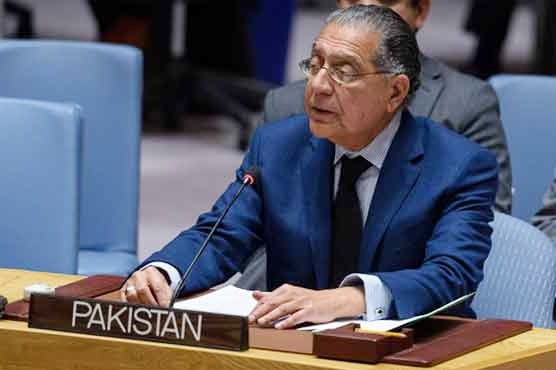NEW YORK – Pakistan urged the global community on Wednesday to pressure the Afghan government into halting attacks by the outlawed Tehreek-e-Taliban Pakistan (TTP).
Munir Akram, Pakistan’s permanent representative at the UN, emphasized the necessity of uncovering the origins of arms and ammunition procured by the banned TTP. He stressed the importance of tracking the financial channels of TTP in Pakistan’s western neighbor and called upon the Afghan interim government to sever ties with the terrorist organization.
Roza Otunbayeva, the Special Representative of the UN Secretary-General on Afghanistan, echoed Pakistan’s concerns regarding the TTP.
She indicated that recognizing the Afghan Taliban government would be challenging until they fulfilled their promises. Otunbayeva briefed attendees on the current situation, highlighting the alarming trend of arbitrary arrests of Afghan women for alleged violations of Islamic dress codes, which has instilled fear among the female population.
She emphasized the detrimental effects of denying women and girls access to education and work, along with their exclusion from public life. Otunbayeva referenced the recent meeting of national and regional special envoys for Afghanistan, stressing the importance of genuine consultations with de facto authorities.
She mentioned Afghanistan’s history of instability, terrorism, and its role in global opium production, which has led to millions seeking refuge in neighboring countries. Otunbayeva acknowledged the Taliban’s efforts in curbing opium cultivation and combating Daesh but emphasized that long-term sustainability requires addressing the issues she outlined.
She expressed apprehensions about negative trends observed recently, including the repression of women and girls, public displays of violence, lack of inclusive governance, and the marginalization of minorities.
While acknowledging improved day-to-day security since the Taliban takeover, Otunbayeva emphasized the challenges that persist in Afghanistan.










